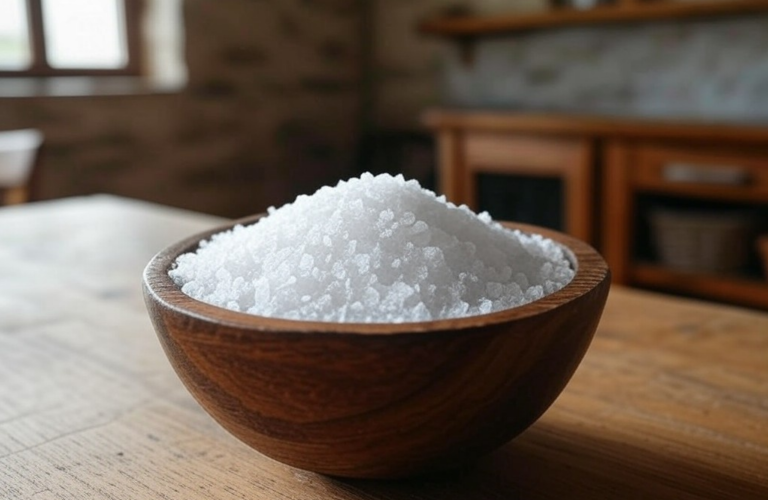Salt
| Type of Salt | Positive Qualities | Negative Qualities | Other Information | Uses |
|---|---|---|---|---|
| Common (Sea Salt) | – Economical – Easy to find – Versatile |
– High in sodium – May contain additives |
– Usually refined, may contain iodine or anti-caking agents | – Everyday cooking, baking, food preservation |
| Maldon Salt | – Flaky, crunchy texture – Mild flavor |
– More expensive – Not suitable for all cooking |
– Ideal for finishing dishes, like meats or salads | – Finishing dishes, meats, salads, desserts |
| Fleur de Sel | – Delicate, complex flavor – Rich in minerals |
– Very expensive – Limited production |
– Harvested by hand from the surface of salt pans, particularly in France | – Gourmet finishing, high-end cuisine, vegetables, meats, chocolate |
| Himalayan Pink Salt | – Contains trace minerals – Visually appealing |
– Health benefits are overstated – High in sodium |
– Comes from mines in Pakistan, colored by minerals like iron | – Seasoning, dish decoration, brines, salt baths |
| Kosher Salt | – Large grain, ideal for seasoning – No additives |
– Not inherently “healthier” – Little flavor difference from common salt |
– Used in Jewish kosher cooking, good for salting meats before cooking | – Seasoning meats, pickling, creating crispy crusts in cooking |
| Black Salt (Kala Namak) | – Unique egg-like flavor – Lower in sodium |
– Strong aroma, not for all palates | – Originates from India, used in vegetarian dishes to mimic egg flavor | – In Indian dishes, chaats, salads, for egg flavor in vegetarian/vegan recipes |
| Celtic Sea Salt | – Rich in minerals – Natural moisture |
– Wet texture, can be less practical | – Produced in coastal areas of Brittany, France, known for quality | – In dishes where a marine flavor is desired, soups, stews, as a cosmetic exfoliant |
Notes:
- Sodium Use: All salts contain sodium, which should be consumed in moderation due to its impact on blood pressure and cardiovascular health.
- Minerals: While some natural salts contain minerals, the levels are so low they don’t significantly contribute to daily needs.
- Processing: Less processed salts tend to retain more minerals and natural flavor but can be more expensive and less convenient for daily use.
- Flavor and Texture: The choice of salt might depend more on flavor and texture than on nutritional content. Flaky salt (like Maldon) is used as a final touch, while coarse salt (like Kosher) is better for seasoning before cooking.

